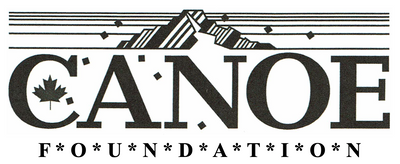Last week, we headed into the big city for our annual excursion to the Toronto International Film Festival (TIFF)…it was its 50th year, and as good as always.
The film we had selected to see was – Tre Ciotole (Three Goodbyes)…by Spanish director Isabel Coixet…takes place in Rome and “told with grace and tenderness, Three Goodbyes is an admonition that, even in the process of bidding the world farewell, there is space for joy. Coixet has crafted a cinematic reminder to stop and appreciate our one precious chance on Earth — a gift that could be taken away at any moment”. Just before the film begins, the MC introduces the film’s Director, who we were not aware was there. She gave a brief background on the making of the film and an overview of what we were about to see…then after the film ended, the Director came back on stage along with the Producer and participated in a Q & A which added more context to what we had just seen.
We’ve attended TIFF (originally the Festival of Festivals) for almost all of its 50 years. As Dave Bidini (of the Rheostatics) wrote the other day in the Toronto Star, “Our life, the festival’s life – each has been framed by what is, despite TIFF’s preoccupation with celebrity, the festival’s true charm: its ability to sunny up the lives of movie lovers, artists and families in a city that needs its cultural signposts. That’s why it’s worth remembering that TIFF isn’t just about the films. It’s about the people who made them and the people who made those people and what a gift it is that we can all watch together.”
For the day after’s breakfast, we went back to a familiar restaurant…aside from a tasty meal, we were both intrigued by the fact that the coffee is served in a mug that says ‘FILL THE SOUL’, which perhaps summed up the overall two day experience.
So…there is that word again and again ‘Gift’, and the recurring theme of community, which brings me circling back to the Indigenous concept of the ‘gift economy’ and our relationship with the planet. Here are more excerpts from the book ‘The Seviceberry: Abundance and Reciprocity in the Natural World’ by Robin Wall Kimmerer.
In a gift economy, wealth is understood as having enough to share, and the practice for dealing with abundance is to give it away. In fact, status is determined, (as we heard about from Douglas Cardinal in a previous blog ‘WE ARE NATURE’), not by how much one accumulates, but by how much one gives away. The currency in a gift economy is relationship, which is expressed as gratitude, as interdependence and the ongoing cycle of reciprocity. A gift economy nurtures the community bonds that enhance mutual well-being; the economic unit is ‘we’ rather than ‘I’, as all flourishing is mutual…Those who have, give to those who don’t so that everyone in the system has what they need. It is not regulated from above but derives from a collective sense of equity in ‘enoughness’ and accountability in distributing the gifts of the Earth.
In a gift economy, the currency in circulation is gratitude and connection rather than goods or money. The prosperity of the community grows from the flow of relationships, not the accumulation of goods. When the natural world is understood as a gift instead of private property, there are ethical constraints on the accumulation of abundance that is not yours to own. Gifts are not meant to be hoarded, and thus made scarce for others, but given away, which generates efficiency for all. Well know examples of gift economies include the potlatch of Pacific Northwest Peoples...Traditional potlatches are gift giving celebrations in which possessions are given away with lavish generosity to mark meaningful life events. This ritualized redistribution of wealth was banned by colonial governments, under the influence of missionaries in the 1800s. Potlatches were seen as contrary to ‘the civilized values of accumulation’ and undermined the notions of individual property and advancement essential to assimilation to the colonial agenda.
In a future blog, we can delve into that colonial agenda, who was driving it and how it has been a major factor in driving the climate crisis.
As Kimmerer suggested, this gift economy is not a top down driven system where individual achievement is seemingly discouraged…this economy is community driven where individuals make the decisions on the sharing of their personal accumulations, possessions and wealth for the betterment of their community. This concept is not one that is contrary to how we in this country operate our public systems of health and education, so we understand the philosophy of pooling our resources for the betterment of all and maybe that is a conversation for a future blog as well.
So perhaps, to ‘FILL THE SOUL’ on a more regular and perhaps permanent basis, we settlers need to listen more closely to the wise words, teachings and practices of our Indigenous brothers and sisters and implement aspects of the gift economy into how we conduct our lives, how we relate to our community and develop a renewed relationship with Mother Nature…is that possibly where the roots to solving the climate crisis can be found?
Check out our fundraising initiative the Paddle Project which allows us to continue our advocacy for Indigenous climate action: Our Paddles - Canoe Foundation





